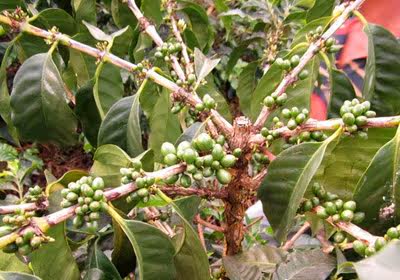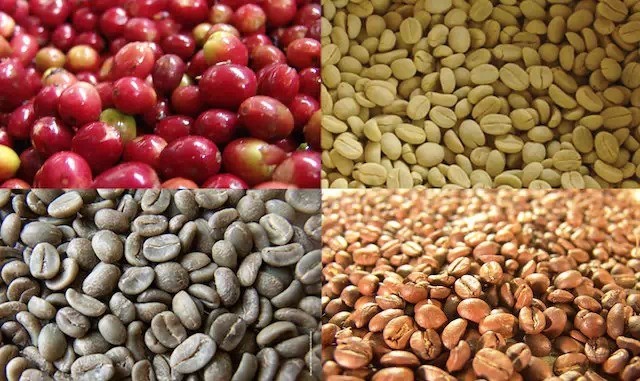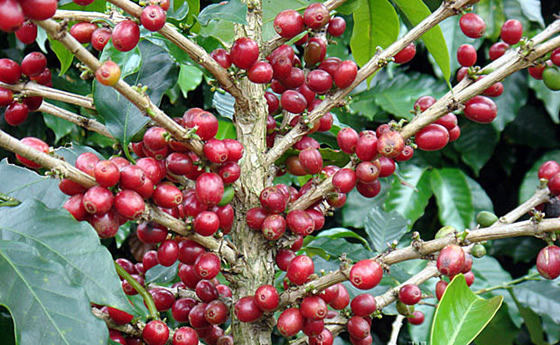Boutique coffee beans: Ataisi Manor in El Salvador, micro-batch washing Pacamara Pacamara
Coffee beans details:
1. Country: El Salvador
two。 Grade: SHG
3. Production area: Izalco area, Sonsonate province
4. Planting height: 1800 meters
5. Picking season: January
6. Treatment: washing and fermentation, sun drying
7. Variety: Pakamara
8. Manor: Finca Ataisi
9. Flavor: nut chocolate, passion fruit, cream, strawberry
El Salvador is located in Central America, bordered by Guatemala and Honduras in the north, and the Pacific coastline in the west and south. El Salvador is the smallest country in Central America and the most densely populated country in Central America. Although the land area of El Salvador is small, it has dozens of volcanoes, and it is the country with the highest volcanic density in the world, so it is called the "country of volcanoes". The average elevation of the country is high, and this geographical environment is very conducive to the growth of coffee, and the western part of El Salvador near Guatemala is the main coffee producing area.
Coffee in El Salvador is grown mostly by small farmers, who grow it in the traditional way: almost 100% shade. The coffee harvest lasts from November to March. The fresh fruit of coffee is picked by hand.
On the whole, Salvadoran coffee inherits the mild quality of Sino-American coffee, which is soft, slightly sour and has beautiful sweetness. At the same time, it also has its own characteristics: the aromatic taste is slightly sour and very soft; it is pure and has no miscellaneous flavor, and the taste balance is excellent; the smooth feeling like cream chocolate is impressive; the dense feeling of coffee in the mouth gives the coffee a deep taste and a long finish.
Salvadoran coffee is graded according to the altitude of planting, with the highest grade being SHG:
More than SHG:Strictly High Grown-1200 meters
More than HG:High Grown-900 meters
Above CS:Central Standard-600 meters.


Introduction to Pacamara:
Pacamara is the artificial breeding variety of Pacas and Maragogipe. It was first cultivated by researchers in El Salvador in 1958. Pacamara is an excellent variety under rare artificial breeding, which is better than blue, and perfectly inherits the advantages of the mother plant. Both the excellent taste of Pacas and the large size of Maragogipe are inherited by raw bean granules. The bean body is at least 70% and 80% of that of elephant beans, with more than 17 orders and more than 100% and more than 18 eyes. Average bean length 1.03 cm (general bean about 0.8-0.85 cm) average bean width 0.71 cm (general bean about 0.6-0.65), thickness 0.37 cm, bean shape plump and round. The biggest feature of this variety is that it is sour, lively and tricky, sometimes biscuit, sometimes fruity, thick and greasy. The quality is the best from El Salvador and Guatemala.

Introduction to the manor:
Manor: Finca Ataisi
Region: Izalco area, Sonsonate province
Class: SHG boutique pacamara
Planting height: 1800 meters
Total acreage of manor: 908 hectares
Pacamara planting area: 20 ha
Picking season: January
Certification Information: Rainforest Alliance Rainforest Alliance Certification
Treatment: washing and fermentation, sun drying.
Batch: Micro LOT micro batch
Taste description: nut chocolate, passion fruit sweet and sour, cream chocolate, strawberry aftertaste, nuts.
Important Notice :
前街咖啡 FrontStreet Coffee has moved to new addredd:
FrontStreet Coffee Address: 315,Donghua East Road,GuangZhou
Tel:020 38364473
- Prev

Knowledge of the classification of coffee beans: the difference between selected coffee and commercial coffee
The meaning of selected Coffee the concept of selected coffee originated from a coffee business model many years ago. Around the turn of the century, some old coffee shops were selling high-end beans to be proud of. The old chef baked the beans behind the counter and immediately sold them from the front, so customers were guaranteed to have good fresh coffee. However, due to the success of the industrial revolution
- Next

Boutique coffee beans: Ethiopian Sidamo Lion King sun-dried coffee beans
Coffee bean details: 1. Country: Ethiopia 2. Grade: G13. Production area: Guji 4. Planting altitude: 1800-2000m 5. Soil type: volcanic laterite 6. Annual rainfall: 1100-1200 cm 7. Treatment: insolation 8. Variety: native species (Heirloom) 9. Disposal site: Sirsa Cooperative 10. Raw bean specification: 17-18 items 11. Flavor: Jasmine, honey, orange
Related
- Guji coffee producing area of Guji, Ethiopia: Humbela, Shakiso, Wulaga
- What is the most expensive variety of Qiloso in BOP multi-variety group?
- How to store the coffee beans bought home?
- Why are Yemeni coffee beans so rare now?
- Ethiopian Sidamo all Red Fruit Sun Sun Santa Vini Coffee beans
- SOE is mostly sour? What does it mean? Is it a single bean? what's the difference between it and Italian blending?
- Is Italian coffee beans suitable for making hand-brewed coffee?
- How to choose coffee beans when making cold coffee? What kind of coffee beans are suitable for making cold coffee?
- Just entered the pit to make coffee, what kind of coffee beans should be chosen?
- Can only Japan buy real Blue Mountain Coffee? What are authentic Jamaican Blue Mountain coffee beans?

